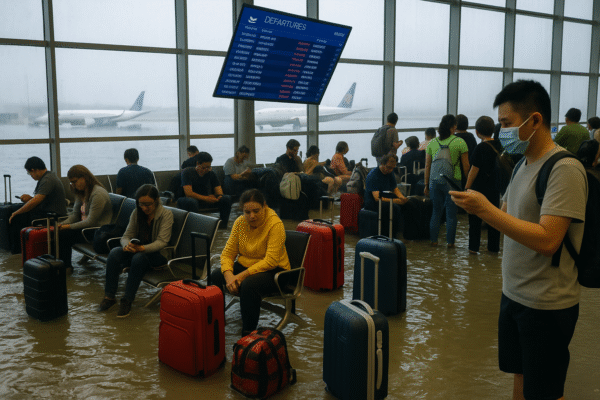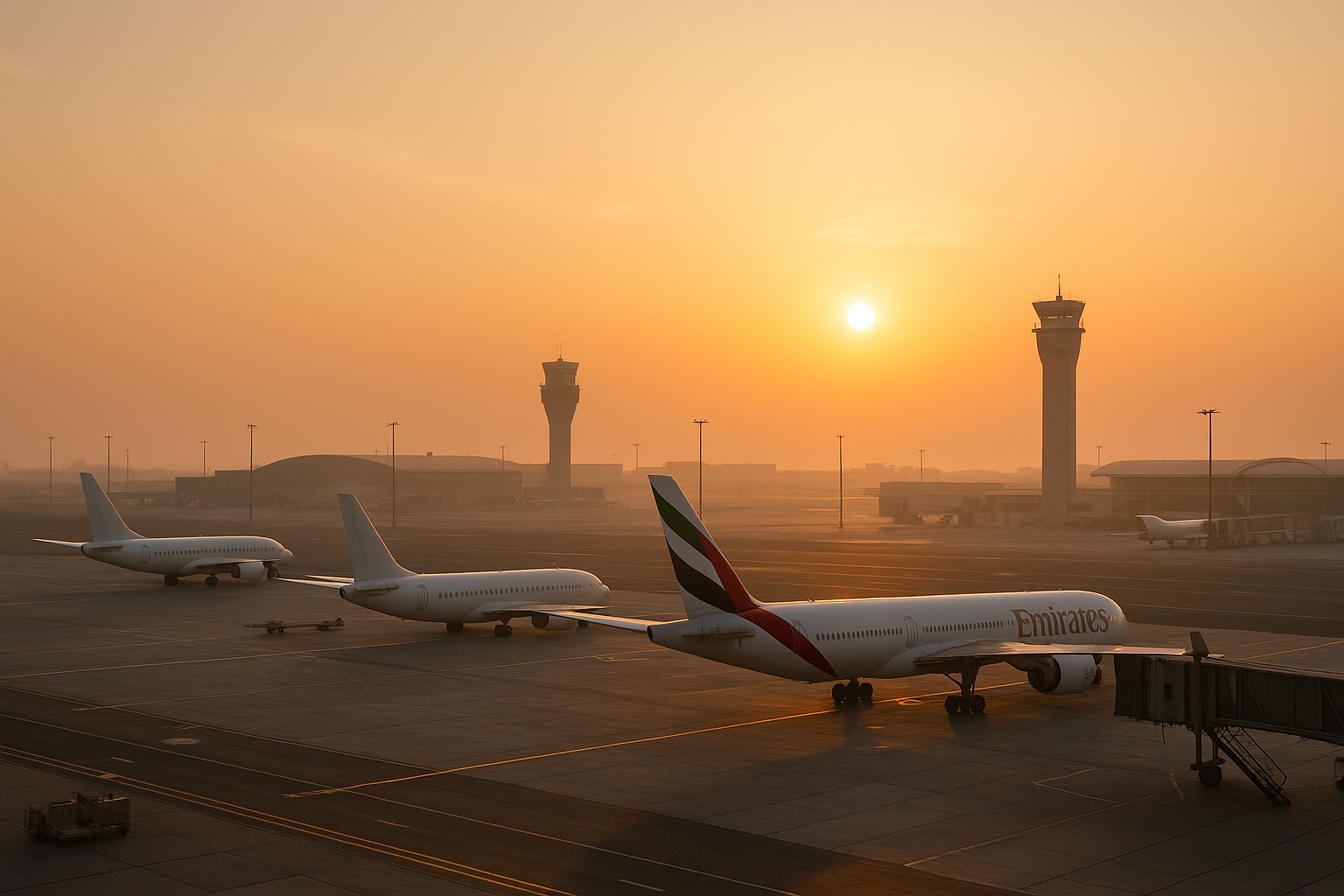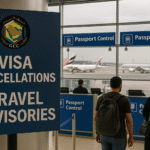June 19, 2025 – Dubai & Doha:
Air travel across the Middle East is facing severe disruption as escalating tensions between Israel and Iran trigger widespread airspace closures and force airlines to cancel or reroute hundreds of flights. Dubai International Airport (DXB) and Qatar’s Hamad International Airport (DOH), two of the region’s most significant air travel hubs, have become ground zero for the operational chaos impacting both regional and international carriers.
The conflict, which intensified following a new wave of Israeli airstrikes on Iranian military targets, has created ripple effects across the Gulf and beyond. Several nations, including Iran, Iraq, Israel, and Jordan, have either shut down their airspace or significantly limited access for civilian aircraft, compelling airlines to make swift, sweeping adjustments to their schedules.
Grounded Airlines and Disrupted Hubs
Prominent carriers including Emirates, Qatar Airways, Flydubai, Etihad Airways, Lufthansa, KLM, and Ryanair have all announced temporary route suspensions and significant delays, citing airspace closures and regional instability. This crisis has left thousands of travelers stranded or delayed, while airports struggle to manage passenger overflow and redirect grounded flights.
At Dubai International Airport (DXB)
One of the world’s busiest aviation hubs, DXB has seen dozens of delayed arrivals and cancellations. Flights originating from cities such as Bishkek, Dublin, New Delhi, and Tehran were either postponed by several hours or canceled outright. Notably, flights to and from key conflict-impacted zones like Tehran (Mahan Air, Iran Airtour) and Damascus (Syrian Air) were completely suspended.
Flydubai and Emirates, the UAE’s flagship carriers, have seen high volumes of disruptions. Emirates canceled routes into Iraq, Jordan, and Iran, while Flydubai ceased operations to Beirut, Amman, and Damascus. Indian airlines like SpiceJet and Air India have also reported significant delays to their Middle East-bound services.
Hamad International Airport (DOH) Faces Parallel Turmoil
Qatar’s Hamad International Airport in Doha is grappling with similar operational issues. Qatar Airways has had to cancel services to Baghdad, Damascus, and Basra, while flights to other cities like Dhaka and Copenhagen were subject to delays of up to two hours.
Several European and international partner airlines operating through Doha—including Finnair, British Airways, Iberia, American Airlines, and Malaysia Airlines—were also forced to delay or reroute flights due to shared airspace restrictions. The disruption has stretched airport ground operations and impacted connecting flight schedules globally.
Airspace Closures Intensify Travel Uncertainty
The disruption stems from coordinated airspace restrictions enacted by Middle Eastern countries amid fears of further military escalation. Iran and Israel have both closed their skies to international flights, while Iraq and Jordan have implemented stringent limitations. As a result, aircraft en route to these zones have been forced to detour through alternative, often congested, corridors—causing longer flight times, fuel concerns, and domino-effect scheduling delays.
Airports like Tehran’s Imam Khomeini International and Israel’s Ben Gurion have suspended most operations, contributing to an overflow of grounded flights across regional hubs. Airlines are now navigating increasingly narrow routing windows through Gulf and Central Asian corridors, further exacerbating operational inefficiencies.
Airline Responses: Cancellations and Rerouting Strategies
Emirates
The Dubai-based airline suspended flights to Israel, Iran, Iraq, and Jordan through mid-June. Additional routes to Lebanon and Syria were also paused. The carrier has begun rerouting transcontinental flights through Egypt and the Arabian Sea, adding hours to long-haul itineraries.
Qatar Airways
Flights to Damascus, Baghdad, Tehran, and Amman were canceled until further notice. The airline issued a travel advisory recommending passengers monitor their email and app notifications closely.
Flydubai
The low-cost arm of Emirates canceled services to several key destinations, including Tehran, Mashhad, Damascus, and Beirut, and suspended future bookings to those cities for the remainder of June.
Etihad Airways
The Abu Dhabi-based carrier pulled flights to Tel Aviv and limited operations to Amman. Travelers have been offered rebooking on alternative routes via Turkey or Egypt.
Lufthansa, Air France, and KLM
These European giants suspended flights to Tel Aviv and Tehran. Lufthansa rerouted long-haul services to avoid Iranian and Israeli airspace, while KLM extended its Tel Aviv suspension until July.
Ryanair
Europe’s largest low-cost carrier halted all Tel Aviv services through August and issued refunds to affected passengers.
Other Affected Airlines:
- SWISS: Flights to Tel Aviv suspended until late October.
- Aegean Airlines: Halted operations to Beirut, Erbil, and Amman.
- Delta Air Lines: Paused New York–Tel Aviv flights through August.
- Pegasus Airlines: Canceled Iranian and Iraqi routes.
- Aeroflot: Rerouted all Gulf-bound flights through Pakistani airspace.
- Yemenia Airways: Suspended services to UAE and Sanaa.
What Travelers Should Do
Passengers scheduled to fly to, from, or over the Middle East are advised to:
- Regularly check flight status through official airline apps and websites.
- Avoid non-essential travel to the affected regions until airspace restrictions are lifted.
- Allow extra time at the airport due to potential last-minute schedule changes.
- Stay informed by monitoring government travel advisories and media outlets.
As the Israel-Iran conflict shows no sign of de-escalating, the Middle East’s airspace remains a volatile environment for commercial aviation. Airlines and airports continue to respond with route suspensions and operational adaptations, but the uncertainty remains high. Travelers are urged to remain vigilant and flexible as the situation evolves.
For more travel news like this, keep reading Global Travel Wire

















